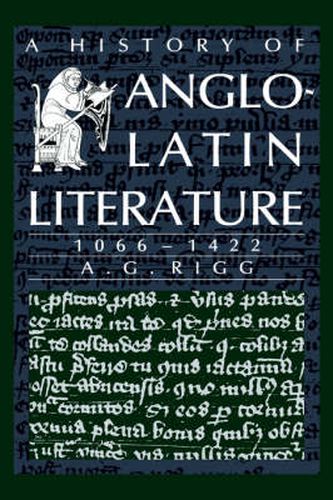Readings Newsletter
Become a Readings Member to make your shopping experience even easier.
Sign in or sign up for free!
You’re not far away from qualifying for FREE standard shipping within Australia
You’ve qualified for FREE standard shipping within Australia
The cart is loading…






There has been no comprehensive history of medieval Anglo-Latin writings (which represent an astonishing nine tenths of English literary culture in the period) for over a hundred years. The past century since the last major work on this subject has seen the discovery and editing of many important texts. A. G. Rigg’s new authoritative reference work underlines how the view of England’s literary history in the middle ages as a decline from Anglo-Saxon culture (recuperated only in the fourteenth century in the work of writers such as Chaucer) ignores the flourishing tradition of Latin literature written between England’s enforced entry into the European mainstream and the rise of the vernacular and of humanism. It reveals a very rich corpus of writings, comprising epic, lyric, comedy, satire, prose anecdotes, romance, saints’ lives and devotional texts. This chronological history gives quotations in the original Latin with English translations in verse or prose; Anglo-Latin metres are explained and exemplified in an Appendix.
$9.00 standard shipping within Australia
FREE standard shipping within Australia for orders over $100.00
Express & International shipping calculated at checkout
There has been no comprehensive history of medieval Anglo-Latin writings (which represent an astonishing nine tenths of English literary culture in the period) for over a hundred years. The past century since the last major work on this subject has seen the discovery and editing of many important texts. A. G. Rigg’s new authoritative reference work underlines how the view of England’s literary history in the middle ages as a decline from Anglo-Saxon culture (recuperated only in the fourteenth century in the work of writers such as Chaucer) ignores the flourishing tradition of Latin literature written between England’s enforced entry into the European mainstream and the rise of the vernacular and of humanism. It reveals a very rich corpus of writings, comprising epic, lyric, comedy, satire, prose anecdotes, romance, saints’ lives and devotional texts. This chronological history gives quotations in the original Latin with English translations in verse or prose; Anglo-Latin metres are explained and exemplified in an Appendix.